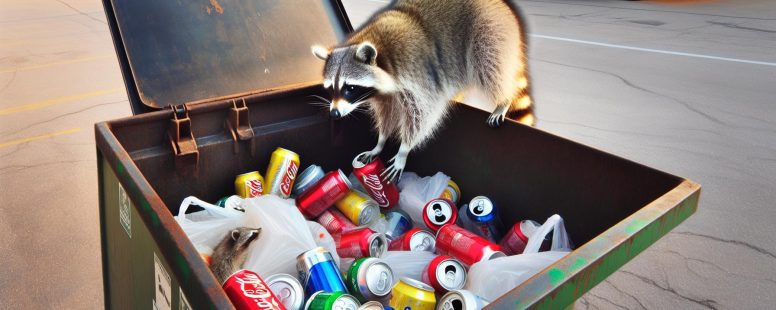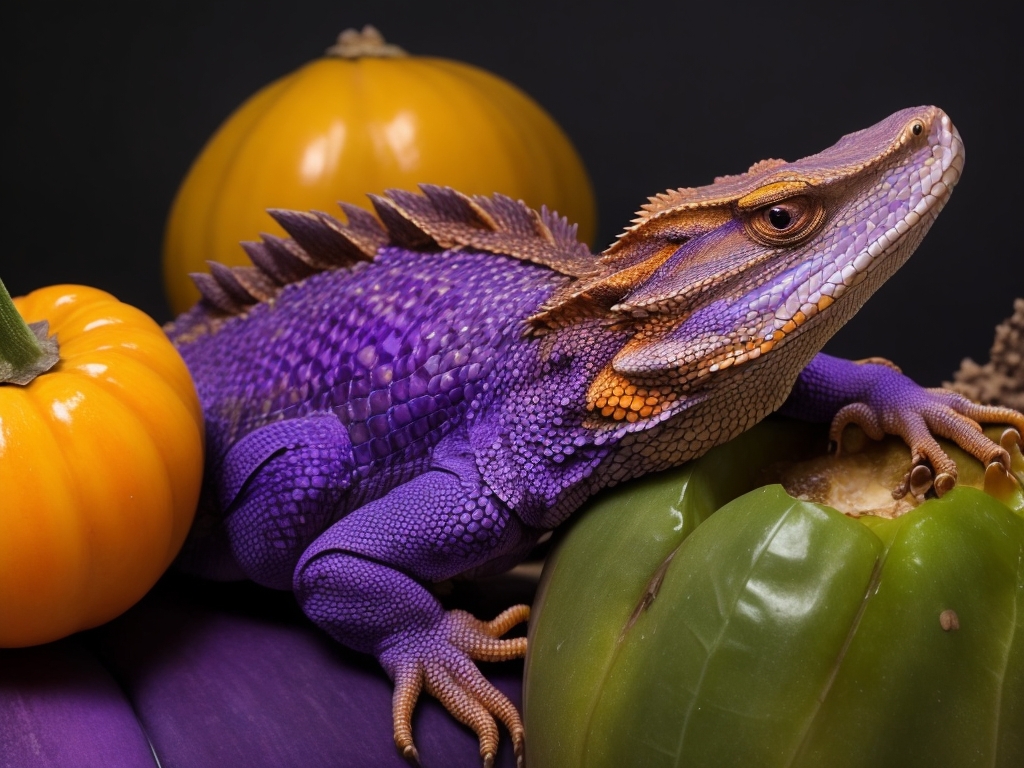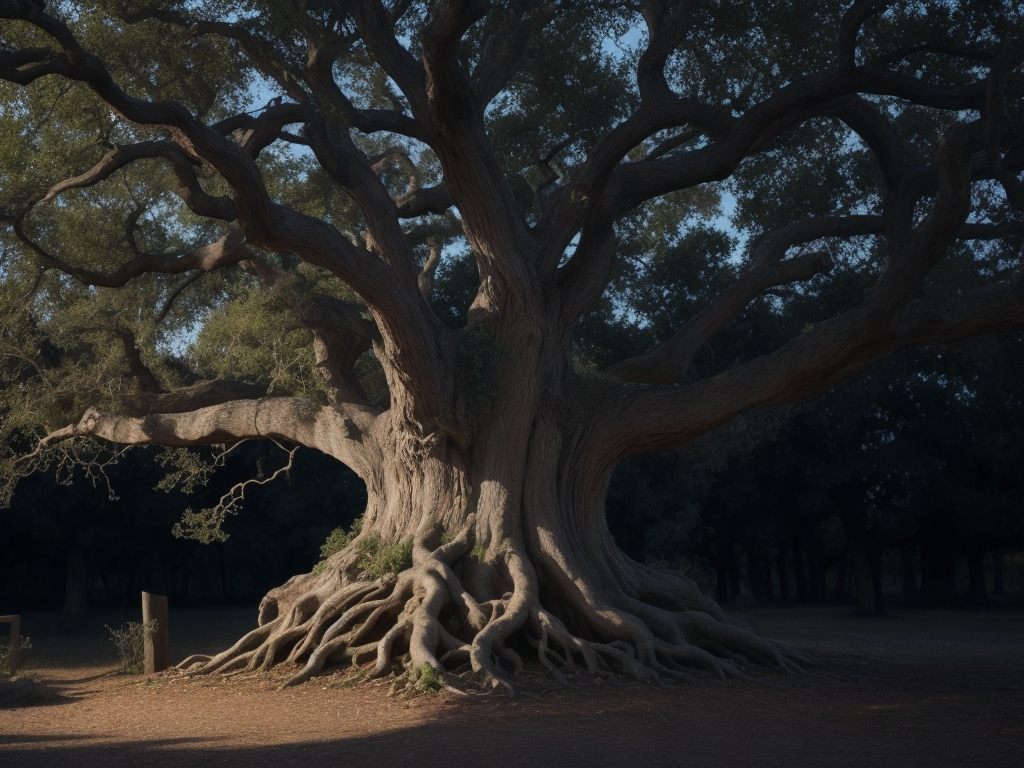Can Coke Poison Raccoons? The Surprising Truth Revealed
You’ve probably heard urban legends about Coke being used as a pest control method, particularly against raccoons. But does this fizzy beverage actually poison these critters? It’s a question that’s sparked curiosity and concern among homeowners and animal lovers alike.
Before you consider leaving out a saucer of soda for your backyard visitors, it’s crucial to understand the impact it could have on raccoons. Let’s dive into the facts behind this controversial topic and uncover the truth about Coke and raccoons.
Myth or Reality: Can Coke Poison Raccoons?
You might have heard tales of Coke acting as a fatal concoction for raccoons, but does this soda really live up to its rumored reputation? With the safety of local wildlife and the effectiveness of home pest solutions at stake, it’s vital to get to the bottom of this claim.
Coke Contains Harmful Substances for Raccoons: It’s true that Coca-Cola is packed with high sugar content and certain acids that aren’t part of a raccoon’s natural diet. While these ingredients may not be ideal for their health, there’s a question mark over whether they are actually lethal.
Raccoons are known for their robust digestive systems, often rummaging through trash cans without any apparent ill effects. Therefore, the notion of Coke as a poison may be an exaggeration. However, regularly consuming foods like Coke, which is far from their natural diet, could potentially lead to health issues for these animals.
- High Sugar Content: A can of Coke can contain around 39 grams of sugar, which is much more than a raccoon would typically encounter in their natural foraging.
- Phosphoric Acid: This is a corrosive ingredient in Coke that can harm the enamel of teeth, and it could have adverse effects if ingested by raccoons in large quantities.
Scientists and wildlife experts haven’t confirmed that these ingredients are fatal to raccoons, but they do agree that it’s not a humane or recommended method for controlling raccoon populations.
One thing is clear: resorting to household items like Coke for pest control is dicey business and can often result in unintended consequences. Instead, professional pest control services or wildlife experts can provide safe, effective, and humane solutions for deterring those pesky raccoons. Their expertise ensures that you’re not causing more harm than good and that you’re taking care of your local wildlife responsibly.
Understanding the Nature of Raccoons

Raccoons are renowned for their adaptability and intelligence. These nocturnal mammals have a knack for surviving in diverse environments, from rural areas to crowded cities. Over time, raccoons have mastered the art of scavenging, making them prolific at navigating human waste to find food.
Their diet is omnivorous, meaning they consume both plants and animals, which includes fruits, nuts, insects, and smaller rodents. This dietary flexibility has contributed to their survival in areas heavily populated by humans. In addition, raccoons are equipped with dexterous front paws that allow them to open containers and unlock potential food sources, showcasing their problem-solving skills.
Raccoons are also known for their strong sense of smell, which guides them to their meals. While the sweet scent of Coke may attract raccoons, it’s not naturally aligned with their dietary needs. Typically, wild raccoons do not encounter soda in their natural foraging, which raises concerns about how their bodies handle such an unnatural substance.
Social behavior in raccoons varies, with some displaying solitary habits while others show more gregarious tendencies, especially when it comes to a reliable food source. This social dynamic can affect how raccoons interact with items left by humans, including potential ingestion of harmful substances like soda.
The survival skills of raccoons also include their incredible swimming abilities and night vision, which aid them in avoiding predators and finding food in the dark. Their agility and quick learning ability make them one of the most versatile urban wildlife species.
While raccoons’ cunning nature often leads them to unexpected food items, it’s essential to consider the ethical implications of intentionally offering them substances like Coke. Given their adaptability, raccoons continue to thrive despite the challenges posed by living in close proximity to humans.
The Harmful Effects of Coke on Raccoons

When you think of raccoons, it’s likely you imagine these little critters rummaging through the garbage, not sipping on sugary sodas. Yet, it’s vital to understand that while raccoons are known for their ability to consume a variety of foods, Coke and similar sugary drinks are far from being raccoon-friendly. These beverages contain high levels of sugar and caffeine, both of which can have detrimental effects on a raccoon’s health.
Caffeine, especially, is toxic to many animals, raccoons included. The stimulant can cause Hyperactivity, Rapid Heart Rate, and Seizures in these mammals. With their keen sense of smell, raccoons might be lured by the sweet aroma of Coke, unaware of the potential risk it poses to their wellbeing.
On top of that, the sugar content in Coke could lead to obesity and diabetes in raccoons. These health issues are widely observed in humans due to excessive sugar intake and are just as harmful to wildlife. Considering raccoons don’t have access to dental care, let’s not forget that these sugary concoctions can do a number on their teeth, too, potentially leading to Dental Problems and Infections.
Typical consequences of raccoons ingesting Coke include:
- Disrupted digestion
- Altered blood sugar levels
- Dental decay
It’s also worth noting that raccoons have a knack for getting into things they’re not supposed to. This means that leaving out containers of Coke where raccoons can access them might unintentionally invite these animals to consume something that could harm them. It’s always better to play it safe and properly dispose of food and beverage waste to minimize the chances of wildlife, like raccoons, coming into contact with harmful substances.
As tempting as it may be to feed these animals or watch them interact with our leftovers, it’s critical to remember that Human Foods Are Not Always Safe for Wildlife. Simple actions can make a big difference in protecting the health and safety of raccoons. Be mindful of your waste and consider the impact of what’s being left outdoors in raccoon-accessible areas.
Debunking the Common Misconceptions

You’ve likely heard quite a few rumors about the risks that soda, particularly Coke, poses to wildlife, including raccoons. It’s time to sift through these tales and sort out the fact from fiction.
Caffeine is Not a Big Deal for Animals, Right? Wrong. Despite what you might think, caffeine is actually harmful to raccoons. It’s not about the jitters; caffeine toxicity is a real threat to their wellbeing. This stimulant can cause severe symptoms that shouldn’t be taken lightly.
But Sugar Can’t Be That Bad. Contrary to what some may believe, sugar poses serious risks. Raccoons might relish in a sweet treat like Coke, but this doesn’t mean it’s safe. Feeding wildlife sugary foods can lead to a host of health problems and should be avoided.
Wild Animals Adapt to Human Food Easily. Think again. Just because raccoons can be seen rifling through trash does not mean they’re equipped to handle human foods, which are often processed and packed with ingredients that don’t jive well with their digestion or overall health. This assumption is far from the truth and can lead to detrimental consequences for these critters.
A Little Won’t Hurt. You might assume that a small amount of Coke won’t do much harm, but even occasional exposure can introduce these animals to substances that they’re better off avoiding. There’s no safe “just a sip” when it comes to raccoons and soda – it’s better to err on the side of caution.
Always remember to secure your trash and consider the impact of your waste on local wildlife. By staying informed and conscientious, you’re playing an essential role in keeping raccoons safe and healthy.
Alternatives to Coke for Raccoon Control

When keeping raccoons at bay, reaching for Coke is not your only option. There are several humane and safer methods to deter these animals from rummaging through your property.
Secure Your Trash – Raccoons are notorious for scavenging through garbage. Invest in raccoon-proof trash cans with locking lids to ensure that your waste isn’t the main attraction for these critters.
Use Natural Repellents – Consider using natural repellents like peppermint oil or spicy sauces. These smells are unattractive to raccoons and can keep them away from your garden or home without harming them.
- Peppermint Oil
- Spicy Sauce
- Ammonia
Modify Their Habitat – Make your yard less inviting. Clear away brush piles, secure your compost, and use fencing to protect your garden. Raccoons prefer areas with easy hiding spots and accessible food, so removing those comforts can urge them to go elsewhere.
Motion-Activated Sprinklers – Another effective technique is installing motion-activated sprinklers. These devices startle raccoons with a burst of water, which is typically enough to discourage future visits.
Bring in the Professionals – Sometimes, it’s best to entrust wildlife control to the experts. If you’re dealing with a persistent raccoon problem, professional wildlife control services will have the tools and know-how to safely remove these animals from your property.
With these humane strategies, you can manage raccoon encounters effectively. Always avoid harm and respect wildlife while keeping your space secure. Remember to check local regulations before implementing any control measures to ensure compliance with wildlife protection laws.
Conclusion
Understanding the risks associated with feeding raccoons substances like Coke is crucial for their well-being and your peace of mind. You’ve learned that caffeine and sugar can be harmful, and it’s clear that adapting to human food isn’t as easy for wildlife as some might think. Remember, you play a vital role in protecting these creatures by securing your trash and considering their health when they wander into your space. By opting for humane control methods, you’re not only managing potential raccoon issues effectively but also contributing to the welfare of your local wildlife. Let’s all do our part to coexist responsibly with the animals that share our environment.
- What Insurance Do I Need for a Private Dog Park? Essential Coverage Explained - September 28, 2025
- Why Are Backyard Businesses Popular in the US? Top Reasons Behind the Trend - September 28, 2025
- How to Make a DIY Zen Stone Stacking Garden: A Step-by-Step Guide to Mindful Serenity - September 27, 2025




